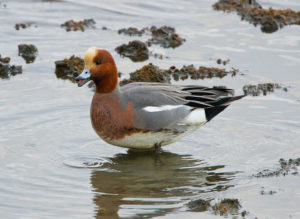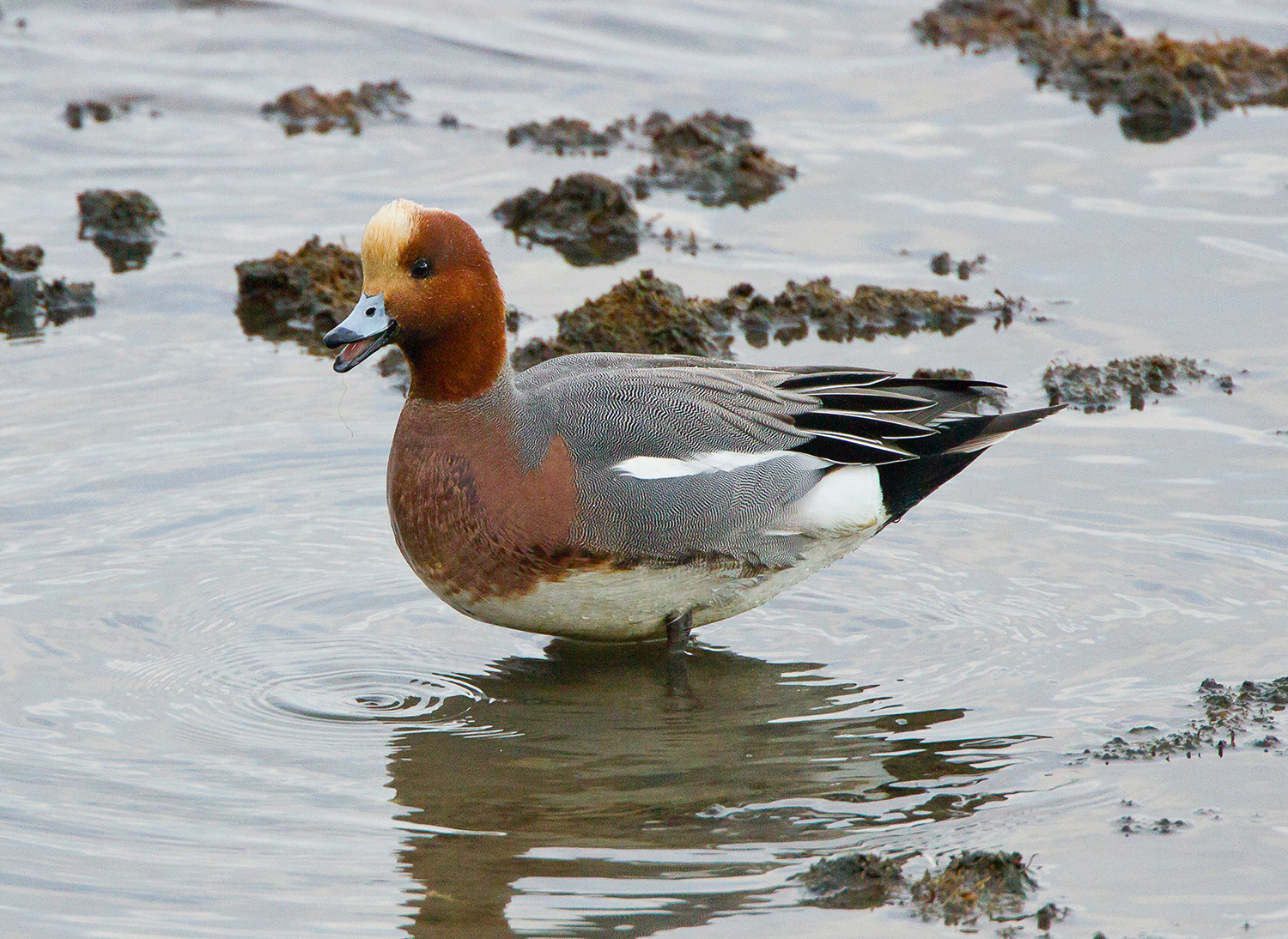 BASC is hoping its sponsorship of the latest edition of the European Breeding Bird Atlas will help boost wigeon numbers.
BASC is hoping its sponsorship of the latest edition of the European Breeding Bird Atlas will help boost wigeon numbers.
BASC has pledged 5,000 euros for a section on wigeon in the book, which focuses on breeding birds in continental Eurasia.
Wigeon have been in decline for almost 20 years due to a reduction in their breeding success. It is hoped that conservation efforts can be targeted by finding out where wigeon are breeding as a result of the species’ inclusion in the atlas.
Dr Matt Ellis, BASC’s scientific advisor, said: “Wigeon are among the best known ducks in North West Europe, with the male’s characteristic whistle well known by wildfowlers and bird watchers.
“They visit Britain in the autumn before returning to breeding grounds in the spring. But their numbers have reduced for several reasons, including the loss of key wetland staging-grounds in Eastern Europe during the last ten years which has diminished their ability to rest and refuel.
“Wigeon is one of our most iconic wildfowl species. We are excited to be able to sponsor the wigeon in the latest edition of the European Breeding Bird Atlas and so support conservation efforts.
“Long gone are the days when we thought that swallows hibernated underwater, yet still we don’t know enough about the distribution and breeding habitats of some of our main quarry species.
“Wigeon have been in decline for almost 20 years. The main concerns are focused on reduction in breeding success, and so getting more information on where wigeon are breeding is a vital first step to being able to target conservation work.
“The European Breeding Bird Atlas is an invaluable resource to help target on-the-ground conservation projects, such as a recent project to restore flood plain meadows in Belarus and Lithuania, funded by the Wildlife and Habitat (Charitable) Trust (www.wht.org.uk) and supported by the UK shooting community.”
Robin Marshall-Ball, a member of BASC council and conservation specialist, added: “This is an important project because it will help conservationists identify the key breeding areas for many species including wigeon, mallard and pintail. Knowing where these ducks breed is a vital first step for targeting habitat management and predator control actions.”
The Wildlife Habitat Charitable Trust (WHCT) is the grant-giving arm of the Wildlife Habitat Trust (WHT), which was set up by BASC at the request of members to raise and distribute funds to help with the acquisition of land for conservation and shooting. The WHCT previously donated 30,000 euros to an international project to benefit breeding wigeon. It was spent on finding out where wigeon were breeding in Lithuania and Belarus, to protect the sites with national legislation and help restore habitat to more favourable breeding conditions.
